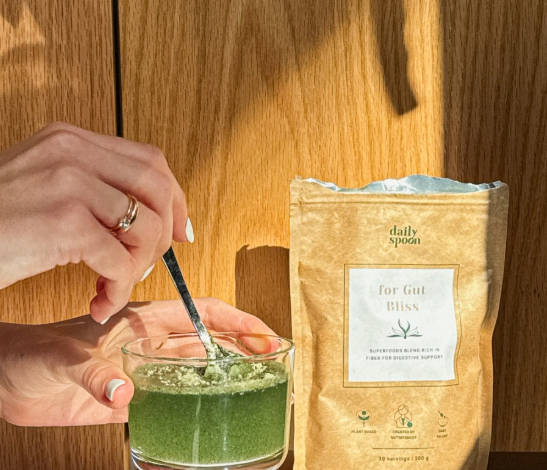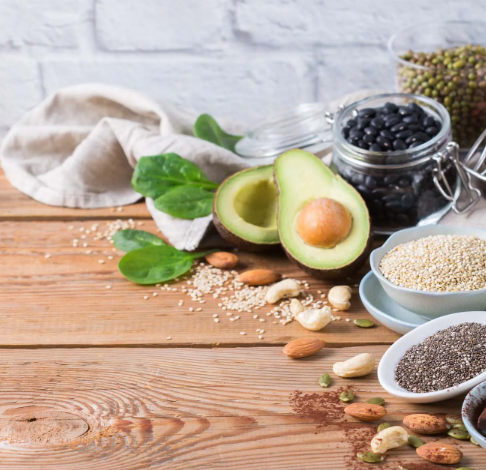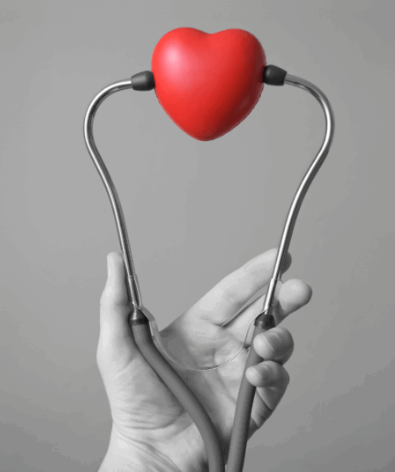
From Bloated to Bliss: Simple Tips to Improve Gut Health
Hey there, lovely!
We’ve all heard the phrase, “listen to your gut,” and while it’s often about trusting your instincts, it should also remind you to pay attention to your digestion. After all, your gut plays a massive role in your overall health—physically and mentally.
It’s easy to ignore our gut health until something goes wrong, but keeping it in top shape is key to maintaining strong immunity, clear thinking, and a balanced life. So, if you’re looking for better energy, fewer digestive issues, and a general sense of wellness, it’s time to focus on nurturing your gut.
Making small improvements can lead to huge benefits!
I get it—health journeys can feel overwhelming, especially when you’re dealing with chronic issues. It can seem like no matter what you try, the problems persist. I’ve been there myself. At one point, I was frustrated with my health challenges, thinking, “I’m doing everything right, so why am I not feeling better?” That’s when I shifted my focus from worrying about the bigger issues to taking control of what I could—my digestion. And let me tell you, the results were incredible. The improvements in my gut health had a profound effect on my overall well-being.
In this post, I’ll explain why your gut is so crucial and share some simple, effective strategies for improving your gut health. Let’s dive in!
What’s Happening Inside Your Gut?
Your gut is home to trillions of bacteria—yes, trillions! These little microbes help break down food, produce nutrients, and even protect you from disease. In fact, there are more bacteria in your gut than there are cells in your body! So, it’s no surprise that keeping these bacteria in balance is essential for your health.
When your gut is functioning optimally, about 80-85% of the bacteria are beneficial, and 15-20% are harmful. This balance helps with digestion, supports your immune system, and keeps you feeling energized and healthy. You’ll notice your body is stronger, you rarely get sick, and your digestion runs smoothly.
However, when the bad bacteria start to outnumber the good ones, it can lead to all sorts of issues like inflammation, digestive problems, allergies, and even mood disorders.
How to Keep Your Gut in Balance
What causes an imbalance in your gut bacteria? Some of the main culprits include:
- Medications, especially antibiotics and antacids
- Environmental toxins and chemicals
- Stress and illness
These disrupt the healthy bacteria in your gut, allowing the harmful bacteria to flourish. On top of that, your diet also plays a big role. Everything you eat affects your gut, whether it’s providing nutrients or creating waste that needs to be processed and eliminated.
The secret to a happy gut is twofold:
- Feed it nutrient-dense, whole, plant-based foods.
- Live a lifestyle that supports your body—exercise, minimize stress, reduce toxin exposure, and get plenty of rest.
Your Gut and Mental Health: A Two-Way Street
Did you know your gut is sometimes called your “second brain”? It’s true! Your gut houses an entire nervous system, called the enteric nervous system, that contains around 100 million neurons. These neurons control digestion and send messages to your brain, letting it know how things are going in your digestive system.
This connection between the gut and brain is a hot topic in science, with researchers exploring how gut health affects mental health. In fact, most of your serotonin (the “feel-good” neurotransmitter) is produced in your gut, not your brain. This means your digestive health can have a major impact on your mood, anxiety levels, and even depression.
When your gut isn’t in top form, it can send negative signals to your brain, and when you’re stressed or anxious, it can slow down digestion. This is why stress management is crucial for a healthy gut!
Your Gut’s Role in Immunity
Did you know that up to 70% of your immune system is located in your gut? The gut-associated lymphoid tissue (GALT) is a critical part of your immune defenses, as it helps recognize and neutralize harmful bacteria that try to enter your body.
Additionally, healthy gut bacteria form a protective barrier on the gut wall, helping to keep bad bacteria from entering the bloodstream. So, it’s essential to support these beneficial bacteria to maintain your immune system’s strength.
How to Improve Gut Health
Now that we know why gut health is so important, let’s talk about how to take care of it:
- Take Probiotic Supplements
Probiotics are essential for maintaining a healthy gut. They replenish the good bacteria that help fight off harmful microbes. If you’ve recently been on antibiotics or have digestive issues, a daily probiotic can be especially beneficial. Some trusted brands include Healthy Gut, Dr. Ohirra’s, and Primal Defense. - Eat Probiotic-Rich Foods
Incorporate fermented foods into your diet, like kimchi, sauerkraut, miso, and coconut kefir. These foods are packed with probiotics and are great for supporting gut health. Just make sure to avoid pasteurized versions, as they can kill the beneficial bacteria. - Eat Prebiotic Foods
Prebiotics are fiber-rich foods that feed the good bacteria in your gut. Some top prebiotic foods include garlic, onions, bananas, and artichokes. Adding these to your diet helps nourish the beneficial bacteria, keeping them strong and thriving. - Give Your Gut Time to Rest
It’s important to allow your gut time to digest and clear out waste. Try to avoid constant snacking throughout the day, as it can disrupt the digestive process. Instead, eat regular meals and allow your body time to rest between them. - Stay Hydrated
Drinking enough water is essential for gut health. Water helps move waste through your digestive system, preventing constipation and bloating. Aim for half your body weight in ounces of water per day to stay hydrated. - Limit Sugar and Processed Foods
Excessive sugar and processed foods feed harmful bacteria in your gut. Cut back on these foods to keep your gut balance in check and prevent bloating, fatigue, and other digestive issues. - Reduce Stress
Since stress can negatively affect both your gut and brain, finding ways to manage stress is essential. Practices like yoga, meditation, breathwork, and time outdoors can help shift your body from “fight or flight” mode to “rest and digest,” which is crucial for gut health.
Final Thoughts
Caring for your gut can transform your health, and it all starts with making a few simple changes to your lifestyle. By feeding your body with nutrient-rich foods, managing stress, and supporting your gut with probiotics, you can enjoy better digestion, improved immunity, and a greater sense of overall well-being.






